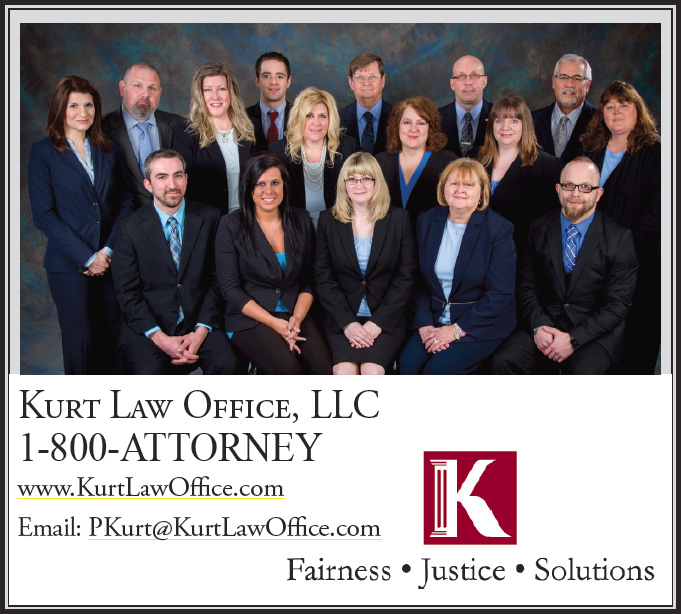 Pamela D. Kurt, Esq
Pamela D. Kurt, Esq
Kurt graduated from Cleveland-Marshall, Cleveland State College of Law with a dual degree, her Master’s in Public Administration and her Juris Doctorate in 2003.
Pamela is a member of the Lakeland Hall of Fame and National Association of Professional Women (was named “Woman of the Year”), and an adjunct faculty member at Bryant and Stratton College in Cleveland.
One of Kurt’s passions is volunteering. She lives with her son, Joshua, and dog Cameron.
By Pamela D. Kurt, Esq., Kurt law Office, LLC
What appears to be a simple legal document is more complicated than it appears.
A general power of attorney permits an individual called the “principal” to name another individual called the “agent” to make legal and financial decisions for them.
A health care power of attorney is, like the general power of attorney, where a principal names an agent, and the agent then makes health care decisions on his or her behalf.
These are two separate legal documents with separate functions.
A key advantage of having a power of attorney is that it permits you to control your own destiny even when you become incompetent.
For example, if your grandmother executed a general power of attorney and a health care power of attorney and then unfortunately succumbs to dementia, the agents she has already appointed can act both to make health care and legal and financial decisions. It insures her trusted agents can make decisions on her behalf.
Compare this to the person without a general or health care power of attorney who later succumbs to Alzheimer’s disease. Who makes decisions for him or her now?
In this case, the local county probate court would appoint a “guardian” to manage either or both the health and/or financial affairs. Under this scenario you would be legally referred to as the “ward” and the “ward” no longer has the power to choose the person she feels most trustworthy to manage her affairs. It is at the discretion of the court.
Drafting both a general and health care power of attorney lets an individual control her own destiny and saves her resources.
Are all power of attorney documents created equal? NO! They should be tailored to the individual, and their unique circumstance. Using a template form from the store or the internet could leave out options that can cost you later.
Here are some basic pointers on Powers Of Attorney (POA):
First, a POA should provide for successors in case your named agent refuses to act on your behalf, is no longer able, or has predeceased you.
There are many cases where a POA would like to step-down. However, if the principal is now incompetent and the document provides for no successors, then no successor can be created, and once again the local probate court will appoint a guardian. This is a costly option that could have been avoided by a properly written POA.
Second, a POA should include language that permits the attorney in fact to sell real estate for the principal.
In such a case, if the principal is now incompetent, a power of attorney is powerless to sell any real estate and the family may have to turn to local probate to seek a guardianship.
Third, a POA should include language permitting the agent to invest, manage, and seek rollovers in retirement accounts.
This language is a must for any individual who worked for the government and has a retirement account (OPERS, STRS, etc.). If the POA does not provide for a roll-over of retirement accounts and the principal becomes incompetent, a limited guardianship for the sole purpose of collecting the OPERS monies has to be pursued. Again, this is time-consuming and expensive for the family.
This is obviously not an all-inclusive list, but it highlights problems noticed in the field.
So when you decide to have estate documents drafted, please be on the lookout for a Power Of Attorney that provides for all different scenarios with a succession of agents named. Be prepared, and avoid probate court and the guardianship process.
Contact our office at (440) 516-1010 to discuss your specific needs today. We offer FREE consultations.
Lake County Office:
30432 Euclid Ave., Ste. #101
Wickliffe, Ohio 44092
(T) 440 516-1010
(F) 440 516-1011
Geauga County Office:
137 Main Street, Suite #1
Chardon, Ohio 44024
(T) 440 279-0660
(F) 440 279-0661
Ashtabula County Office:
2318 Lake Avenue
Ashtabula, Ohio 44004
(T) 440 536-4530
(F) 440 536-4149
























